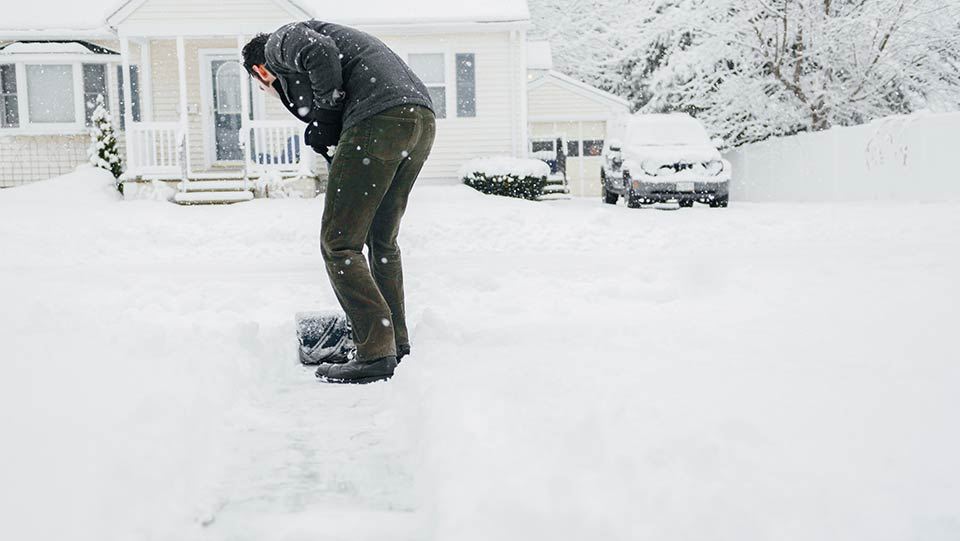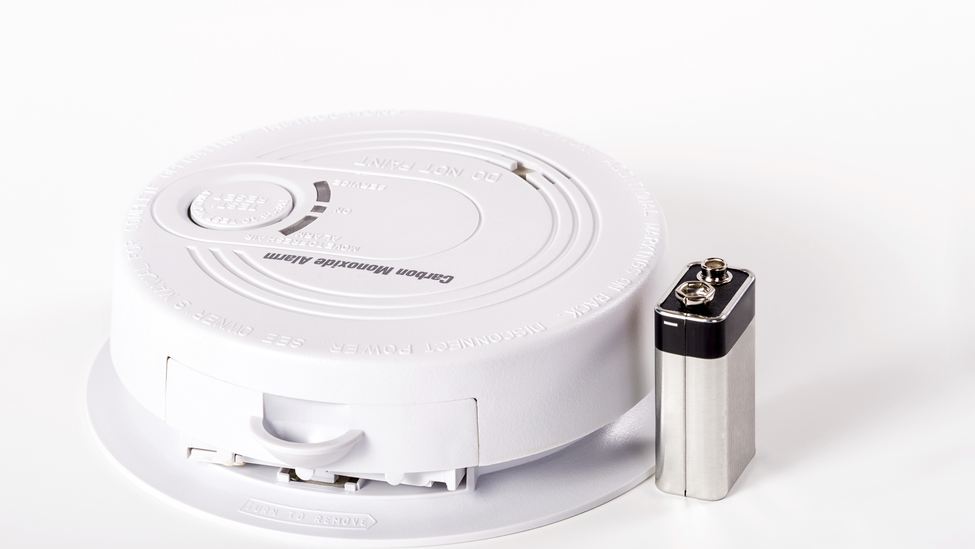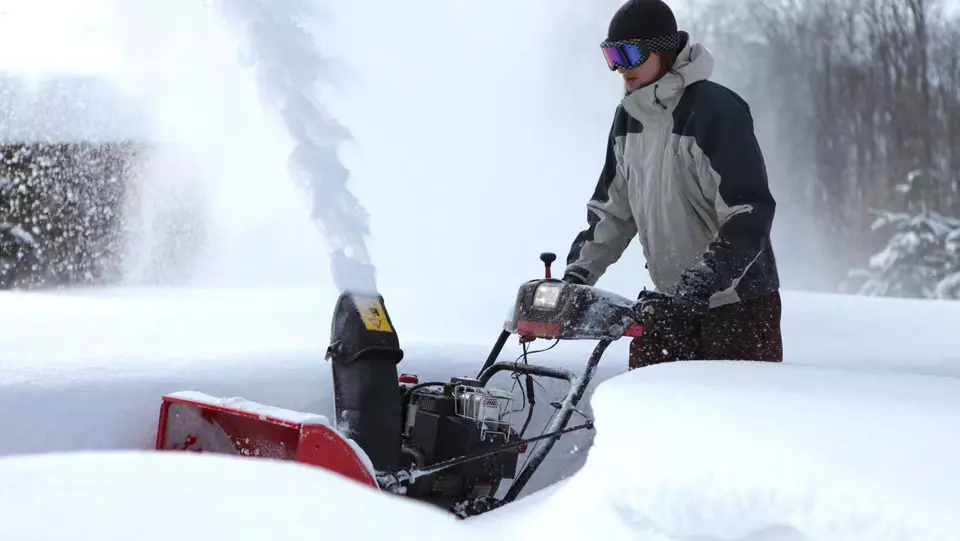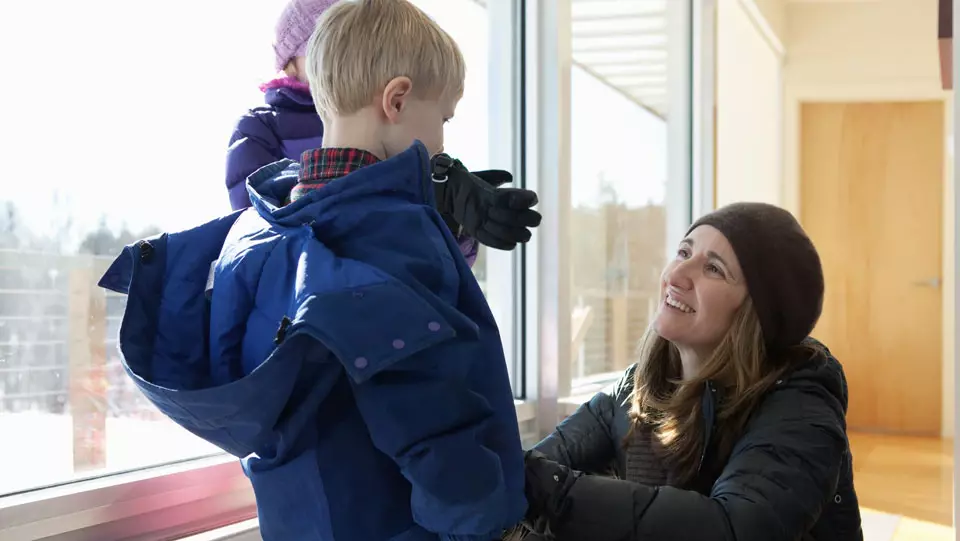How to Help Prepare for a Snowstorm

Travelers is proud to work with the finest Independent Agents
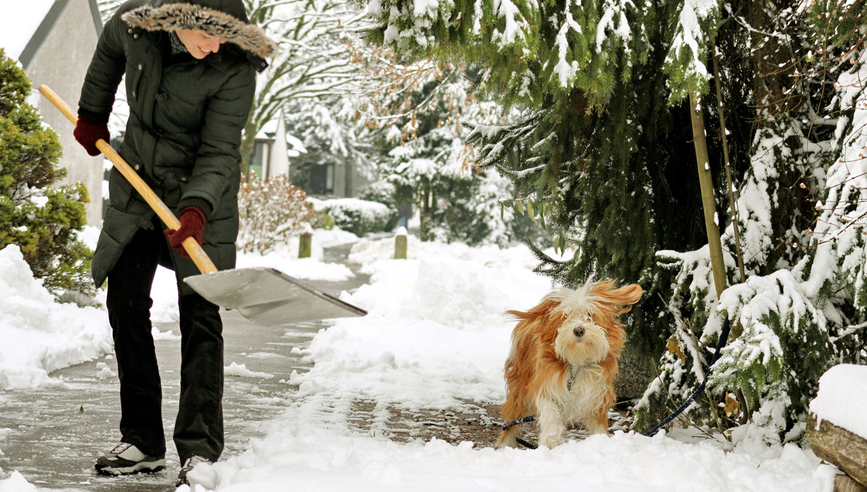
The ideal time to get ready for a snowstorm is long before one is in the forecast. Winter storms can bring cold temperatures, icy roads, power failures and a loss of communication services. Such conditions bring safety challenges, so you’ll want to plan ahead.
Here are some tips to help prepare your home, loved ones and vehicles in advance of a snowstorm:
Watch for winter weather advisories
From heavy snow and sleet to freezing rain and blizzards, winter storm warnings are typically issued between 12 and 24 hours before inclement weather arrives in your area.1 Watch for news reports or sign up for smartphone storm alerts that will inform you of incoming severe weather so you have time to prepare.
Create a communication plan
One of the most important aspects of winter storm planning is figuring out how you’ll know that your loved ones are safe during and after a weather event.
Create an emergency communication plan. Work with your family and friends to determine how you’ll stay in touch during a snow emergency. Consider all eventualities and document your plan. Test it out with an occasional communication drill to make sure it’s still valid and that everyone is prepared for an emergency.
Distribute your plan to everyone involved. Make sure they store it digitally and print out a copy to keep in a safe place that will be accessible.
Check your supplies
- Snow and ice removal. Have a snow shovel and ice melt to keep walkways clear and safe.
- Fuel. Check that you have sufficient heating fuel for your home and fuel for your generator, if you have one.
- Plenty of wood for a fireplace. If you will be using a fireplace or wood-burning stove, have a supply of dry, seasoned wood. If you start a wood-burning fire, follow all fireplace or wood stove safety precautions.
- A supply of food, warm clothes and medications. Have warm clothing and blankets on hand, and stock non-perishable food items and necessary medications to last your family for several days. In addition, stock up on batteries, flashlights, a first-aid kit and other emergency supplies you may need in the event of a power outage.
- Power up electronics. Keep your smartphone, tablet and computer batteries fully charged and have alternate power sources for your devices at the ready. You never know when a power outage could leave you vulnerable.
- Battery-powered radio. Keep a battery-powered radio on hand to stay aware of changing weather conditions.
- The fun stuff. Keep cards, puzzles and board games around in the event that online entertainment isn’t available.
Keeping pets safe during winter weather
If you have pets, take the proper precautions to help keep them safe in the event of a winter weather emergency.
- Keep pets indoors. If you have domestic animals such as a dog or cat, keep them indoors during inclement weather.
- Have extra food, water and supplies available. Have plenty of food and fresh water on hand for your pets, as well as cat litter or puppy pads. Make sure you have extra plastic bags or cleaning supplies in the event your pet makes a mess indoors.
Prepare your home for winter storms
In addition to winter storm preparation for people and pets, it’s also important to prepare your home for winter conditions. Follow these tips to help make sure your home is ready for a winter weather emergency.
Pipes
- Insulate water lines that run along exterior walls. This will help keep your water pipes from freezing and help to prevent damage from frozen pipes.
Doors and windows
- Caulk and weather-strip doors and windows. This can help prevent cold air from getting in, which can help preserve heat if your power goes out. If your doors and windows are old, consider having them replaced by a licensed contractor. Newer models can be very efficient and could help to reduce heat loss significantly.
- Replace screens with storm windows. This also helps keep cold air out and adds an additional layer of storm protection to your home.
- Consider using plastic insulation over windows. It can help to keep cold air and drafts out of your house, especially if you have old windows. Be sure to follow the manufacturer’s instructions when using plastic window insulation, including safety recommendations.
Heating
- Have your furnace or boiler checked. Prior to each winter season, have a qualified technician inspect your flue vent and heating system to make certain it’s functioning properly. This could help keep them from failing when pumping out heat during a storm.
- Use generators safely. If you have a generator, set it up to only operate outside where there is sufficient ventilation.
- Have your chimney or flue inspected regularly. If you plan to use a fireplace or wood stove, have it regularly inspected and maintained/cleaned by a professional.
- Install thermometers. Indoor thermometers seem quaint; however, they can also be lifesavers for vulnerable seniors. If the heat goes out, a large thermometer in a prominent place could make it easier for them to notice a problem even when they do not feel it.
- Test alarms. Test all smoke and carbon monoxide alarms to make sure they work properly.
- Have fire extinguishers nearby. Keep a multipurpose, dry chemical fire extinguisher near fireplaces, stoves and other heating sources. Examine them regularly to make sure they’re in good working order.
- Purchase fuel early. If using oil or propane, make sure you have an adequate supply if a storm is in the forecast. Also, have sufficient emergency fuel on hand to run your generator or backup heating system. If you wait too long to fill up, supplies might be limited, and if stormy weather has started, it may be unsafe to travel to obtain emergency fuel.
- Stock up on supplies. Make sure you have plenty of wood, pellets, kindling, lighters and matches to get you through an emergency.
- Do not use your cooking appliances as a heater. Never use an oven or a range as a home heating device.
- Use candles safely. Do not let candles burn unattended, and keep them away from combustibles. Battery-powered LED lights are a safe, energy-efficient alternative to traditional candles.
Other areas of the home
- Insulate walls and attic. This is a proven way to reduce heat loss if your power goes out in a storm. If you’re not sure how much insulation you need, check with a professional insulation installer.
- Inspect your roof. From the ground, look for wear and sagging areas. If you find any, have a professional roofer check them out and repair them. Weakened roof areas could be further damaged or collapse under the heavy weight of snow and ice.
- Repair roof leaks. Expansion and contraction of ice can make roof leaks worse. Have a professional roofer repair leaks quickly in order to prevent additional water damage.
- Remove weak and overhanging branches. Get rid of any branches that are overhanging your roof or near your house. These branches could break away under the weight of snow and ice or because of severe winds and cause damage to your roof and other property.
- Activate your ice dam system. If you have an ice dam prevention system, turn it on before the snow starts to fall.
Vehicle safety for winter weather
It’s best to avoid driving during a snowstorm or ice storm, but sometimes driving is necessary. Make sure you have a full tank of gas, even if you do not anticipate that you may have to be out on the road during stormy conditions. Before severe winter weather, check your lights, heater, hazard signals and windshield wipers to make sure all are working properly. Above all, if you have to drive in winter weather, drive slowly and be mindful of patches of snow, ice and potentially black ice that may be on the road. Always stay aware of weather conditions by checking local news and weather apps and signing up for weather alerts.
It’s also important to make sure your car is stocked with the appropriate tools and supplies in the event of an emergency. Some important automotive accessories to have on hand include:
- Battery-powered radio and extra batteries
- Booster cables with fully charged battery or jumper cables
- Road flares, brightly colored flag or help signs
- Cat litter or sand for tire traction
- Road salt to melt ice
- Emergency tire repair kit
- Cellphone car charger and external power source
- Local street maps in case you don’t have access to GPS
- Windshield brush and scraper
- Shovel
In addition to auto-related items, pack the following items into a safety kit in your car for when you may be driving during stormy conditions, or in the event your car breaks down in a snowstorm:
- First-aid kit with medications and prescriptions
- Flashlight with extra batteries
- Hat, coat, gloves and a blanket
- Lighter and waterproof matches
- Pocket knife and tool kit
- Water and non-perishable food items
Finally, make sure to let others know you may be traveling, your estimated time of arrival and any routes you plan to take in the event of an emergency.
Stay inside – and be safe outside, too
The best thing you and your family can do is to remain indoors during a severe winter storm. However, if you do need to go outside around your property to shovel or salt, there are a few added precautions to take:
- If you go outside to shovel snow, know your limits and avoid overtaxing yourself.
- Protect, identify and treat frostbite and hypothermia by wearing layers of warm, loose-fitting, lightweight clothing.
- Stay away from downed power lines.
Be sure you have the right insurance coverage
While there are many fun winter activities to look forward to, it’s important to take steps to help ensure your safety in the event of a winter storm. In addition to following these tips to prepare for winter storms and weather advisories, contact your local independent insurance agent or Travelers representative to make sure you have the right coverage to protect your home and vehicle.
